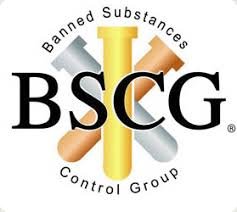Inside BENEO’s new pulse plant: pioneering sustainable protein from faba beans
Leading third-party certification provider expands on FDA effort to address questionable ingredients sold as dietary supplements
In April, the U.S. Food & Drug Administration took a laudable step calling out dietary supplement ingredients that do not appear lawful in its new FDA Dietary Supplement Ingredient Advisory List. BSCG (Banned Substances Control Group), a proud leader in third-party certification and testing for the dietary supplement and natural product industry for more than 15 years, has been compiling its own Dietary Supplement Ingredient Advisory List and is now making it available publicly to help address questionable dietary supplement ingredients.
The BSCG list, which currently includes 70 compounds but continues to grow in number, is now featured on the BSCG website. As a policy, BSCG does not allow any of the ingredients included on this list to be contained in the products that it certifies.
“We appreciated the FDA’s recent move to name some problematic ingredients,” said Oliver Catlin, BSCG President, “and we wanted to support and expand upon the FDA effort and provide a resource for stakeholders including consumers, nutrition experts, anti-doping agencies, and responsible members of the nutrition to use when considering dietary supplement ingredients.”
Questionable ingredients that do not appear lawful are a major problem for responsible members of the supplement industry. To those who consume them, products that contain these ingredients can bring adverse side effects and create health and safety problems or lead to positive drug tests. Fortunately, the supplement and nutrition companies that peddle such ingredients represent a small fraction of the industry.
These pharmaceutical or synthetically derived ingredients, however, compete with legitimate dietary supplements, affecting the market and consumer demand. Since these ingredients are often labeled as dietary supplements, the consumer may simply be unaware that what they are taking is actually a drug or a substance that otherwise does not fit the legal definition of a dietary supplement.
Athletes and other drug-tested professionals should take note of this list as the majority of substances included are prohibited in sport and other performance-enhancing drug-testing programs. Those that are not explicitly banned may be interpreted as prohibited based on the catchall language included in the World Anti-Doping Agency (WADA) Prohibited List and common to most prohibited substance lists in use today.
“Allowing pharmaceutical ingredients to be sold as dietary supplements is unacceptable as it damages the legitimate dietary supplement industry and puts consumers and athletes at risk,” Catlin said. “We hope that our list can serve as the foundation of a larger collective effort to combat questionable ingredients.”
BSCG (Banned Substances Control Group) applies the Olympic standard of drug testing to quality control of dietary supplements and natural products. Founded in 2004 by renowned sports anti-doping scientist Don Catlin, M.D., son Oliver Catlin, and attorney Ryan Connolly BSCG helps shield consumers from banned substance contamination or other quality concerns that may tarnish dietary supplements. BSCG offers a complete suite of testing and certification programs that protect against drugs or other harmful agents and provides security to brands and their consumers.

